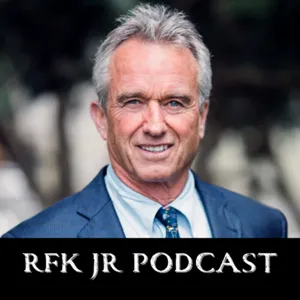Podcast Summary
Misconception about the ocean's pH level: The ocean's pH level has decreased slightly from 8.2 to 8.1, impacting marine life and ecosystems. PlushCare offers weight loss solutions with FDA-approved medications and most insurance plans. Blue Nile sells lab-grown diamonds, which are identical to natural diamonds, and guarantees their quality with a promo code 'listen' for $50 off $500 purchase.
Despite common misconceptions, the ocean is actually alkaline and has become slightly less so due to the effects of climate change. This misconception arose from a misunderstanding on BBC Radio about the ocean's acidity level being 30% more acidic than before. In reality, the ocean's pH level has decreased from 8.2 to 8.1. This change may seem small, but it can have significant impacts on marine life and ecosystems. Meanwhile, for those looking to lose weight, PlushCare offers a solution. This telehealth provider has doctors available day and night to help individuals on their weight loss journey. They can prescribe FDA-approved weight loss medications like Wegovy and Zeppound for eligible individuals and accept most insurance plans. Lastly, Blue Nile offers a more affordable alternative to natural diamonds with their lab-grown diamonds. These diamonds are independently graded and identical to natural diamonds, and Blue Nile guarantees their quality and ships them directly to customers. Use the promo code "listen" to get $50 off a purchase of $500 or more.
Ocean is becoming more acidic despite only a small drop in pH: A 0.1 decrease in pH causes a 30% increase in ocean acidity, with significant impacts on marine ecosystems due to logarithmic nature of pH scale
The ocean's pH level, which measures the concentration of hydrogen ions, has dropped from 8.2 to 8.1, making seawater more acidic, even though it is still technically alkali. This small drop in pH is being reported as a large increase in acidity due to the logarithmic nature of the pH scale. When carbon dioxide is released into the atmosphere and dissolves in seawater, it forms hydrogen ions, leading to ocean acidification. This process moves seawater further away from alkali and closer to becoming acid. Despite the pH level only dropping by 0.1, the ocean has become 30% more acidic. This means that even small changes in pH can have significant impacts on marine ecosystems. It's important to remember that the pH scale is logarithmic, meaning that each whole number change in pH represents a tenfold change in hydrogen ion concentration. Therefore, a decrease of one pH unit represents a hundredfold increase in hydrogen ion concentration and a significant increase in acidity.
Logarithmic scales compress larger changes towards the neutral point and amplify smaller changes towards the extremes: Logarithmic scales, like the pH scale, compress larger changes near the neutral point and amplify smaller changes towards the extremes, making even small shifts significant in certain environments.
Logarithmic scales, like the pH scale, are used when dealing with measurements where there can be vast differences. On a logarithmic scale, a change of one unit represents a different amount of change depending on where you are on the scale. For example, on the Richter scale for measuring earthquake magnitude, an earthquake measuring 2 is ten times bigger than one measuring 1. In the case of pH, which measures hydrogen ion concentration in water, changes become more significant as you move towards acidity. A small change in pH, such as moving from 8.2 to 8.1, may not seem like much, but it actually represents a substantial change in hydrogen ion concentration, from 6.2 to 8.2. This is because the logarithmic scale compresses larger changes towards the neutral pH 7, while smaller changes occur towards the extremes of the scale. This is why even small changes in pH can have significant consequences in environments like oceans, where maintaining a stable pH is crucial for ecosystem health.
Oceans have become 43% more acidic since pre-industrial times: Oceans are becoming more acidic, reaching a threshold by the end of the century where seawater will become corrosive to coral and shells
The oceans have become approximately 43% more acidic since pre-industrial times, which is a significant increase in hydrogen ion concentration. This increase in acidity is not uniform across the globe and regional differences exist. While the oceans are unlikely to reach a pH tipping point where they become acidic and drop below pH 7, they are expected to reach a threshold by the end of the century where seawater will become corrosive to coral structures and shells, both of which are important for sea life. The most recent estimates suggest a further decrease of about 0.16 pH units since 2005, which is a 30% increase if we go back to the earlier figure. However, it's important to note that these figures are based on averages and there are local and regional dynamics that need to be considered.
Marine structures and food security at risk from ocean acidity: Ocean acidity puts marine structures like oysters and mussels at risk, potentially impacting entire ecosystems and food security
Certain marine structures, like oysters and mussels, become more vulnerable to damage as ocean water reaches a certain level of acidity. This increased risk could have ripple effects on entire ecosystems and potentially impact our food security. The Plymouth Marine Laboratory's Dr. Helen Findlay and Nathan Gower discussed this concern during a recent interview. While the future may bring new technologies like chatbots, one thing that won't change is the importance of health insurance. UnitedHealthcare's Tri Term Medical plans offer flexible, budget-friendly coverage for those in between jobs or who missed open enrollment. These plans last nearly three years in some states and provide access to a nationwide network of doctors and hospitals. This Mother's Day, consider giving back to the moms in your life with thoughtful gifts from 1-800-Flowers. For a limited time, save up to 40% on Mother's Day bestsellers. Don't miss out on this opportunity to show your appreciation.





